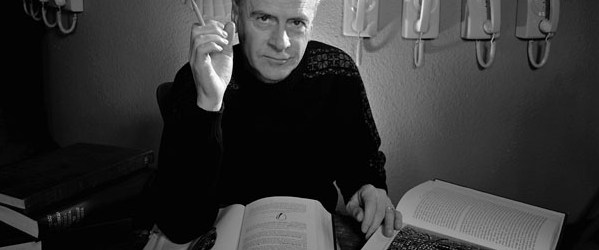
Cynical Guerrilla: Slaves to Free Networks
Commentary, Culture, DigitalDoes a road represent freedom, or does it serve a darker purpose? Does it tell you where you can go– or where you can’t?

Facebook and Twitter are immensely popular, and have become important communication tools, not just in our personal lives, but for businesses and political actors (consider the role that Twitter played in the Egyptian revolution). YouTube, while not strictly a social networking site, has also changed the way we create, share and define entertainment– you only need to look as far as the Old Spice campaign to see how businesses have capitalized on the fact that all the old marketing textbooks have been condemned to irrelevance.
At the same time, a number of old-school communication media are dying. A short list of soon-to-be dinosaurs includes the telephone (how many of you have a smart phone that you almost never use for phone calls?), the print newspaper, print magazines, and traditional cable television. What’s the common denominator? You need to pay for all of these services.

It’s an oversimplification to say that the reason for the emergence of new social networking technologies is that they are free, whereas their predecessor media are not; there isn’t necessarily a causal relationship here. But the fact that they are free, coupled with their continued integration into our personal, cultural and political lives, means that the companies that own them will have a profound and disturbing influence on the shape of our future culture and society.
If your cable suddenly cut out, you would call the cable company, speak to a customer service rep on some 1-800 line, and be treated (more or less) with the respect that a paid customer deserves. The same goes for any paid service. Even though customer service might sometimes be lacking, there is an expectation and an understanding on both sides of the transaction that it should be provided. If Facebook has a problem, I don’t know of any 1-800 number to call.
But of course, the problem isn’t that as freeloaders, we’re getting sub-par customer service. The real problem is that we have no meaningful say in the design, features and mechanics of these free services.
If Facebook is free to use, how does it make money? Ad revenue. It has major infrastructure, major operating expenses, and a huge user base taxing its servers. All this, and it is making a tidy profit. It’s the same with any free service. This means that for a business providing a free online service, there is a constant, gnawing, desperate compulsion to maximize ad revenue. This compulsion is paramount and is tied to the organization’s survival; it will inevitably shape the experience of the end user.

This goes not just for social networks, but for news sources. Now that the Huffington Post has been purchased by AOL, can you really expect that its editorial tone will forever remain untainted by the views of its new masters?
If Marshall McLuhan was right, and the medium is the message, what does it mean when the medium is not a communication medium at all anymore, when it is simply a revenue-generating machine that only needs to engage the users and respond to their needs to the extent that they must be continually lured in to the ad revenue lobster trap? What does it mean when one of the most potent political tools of the last hundred years will ultimately be shaped by commercial considerations, and will therefore shape every piece of data that flows through it? What does it mean when the users have absolutely no say, since they traded their voice in exchange for a free service?
The solution to this problem is constant vigilance and constant innovation. In the world of free services, the only voice you have is your membership. Don’t accept anything less than excellence. If a free service doesn’t do what you need it to, try to get it changed. And if that doesn’t work, leave. Find a service that works better. Or even better, create the tools that you think the world needs.
What’s the difference between a trail and a road? A road has an owner, and its course never changes. A trail is the physical echo of the footsteps of explorers past. A trail can fade when it’s no longer used, and it can branch off organically in new directions, following the footsteps of intrepid pioneers.

We’re all responsible for building the future that we will inhabit. Be a trailblazer. Build the bright future that you expect.
Tread boldly through the brush and forge new trails in the wilderness of the unknown.






















